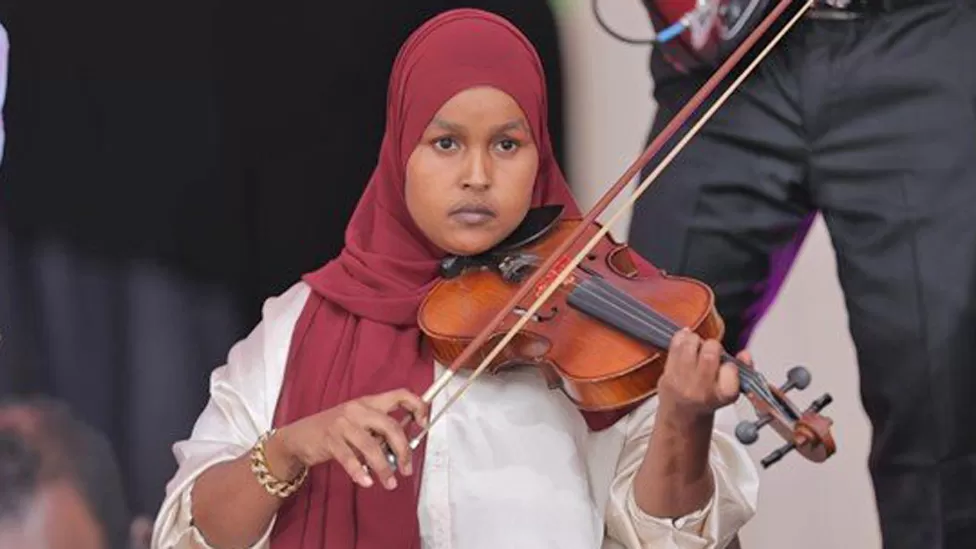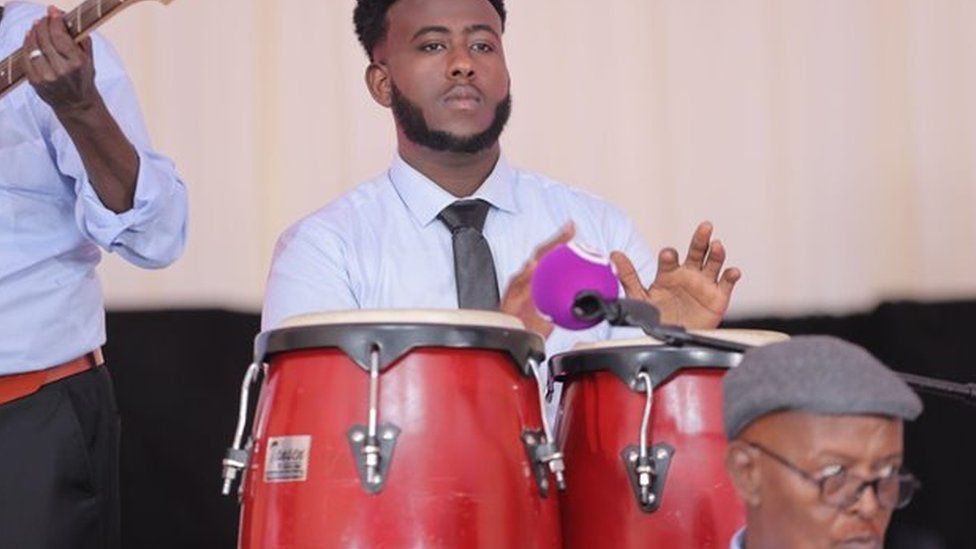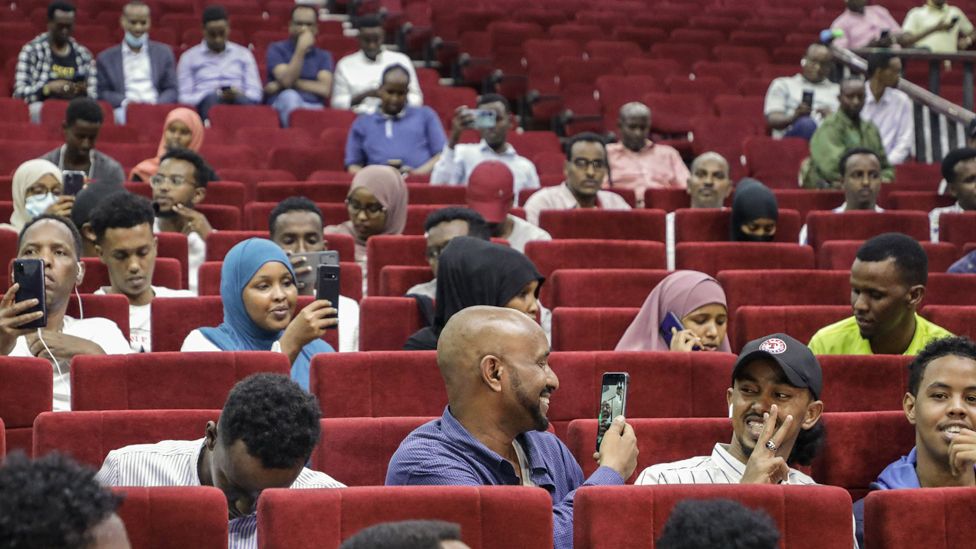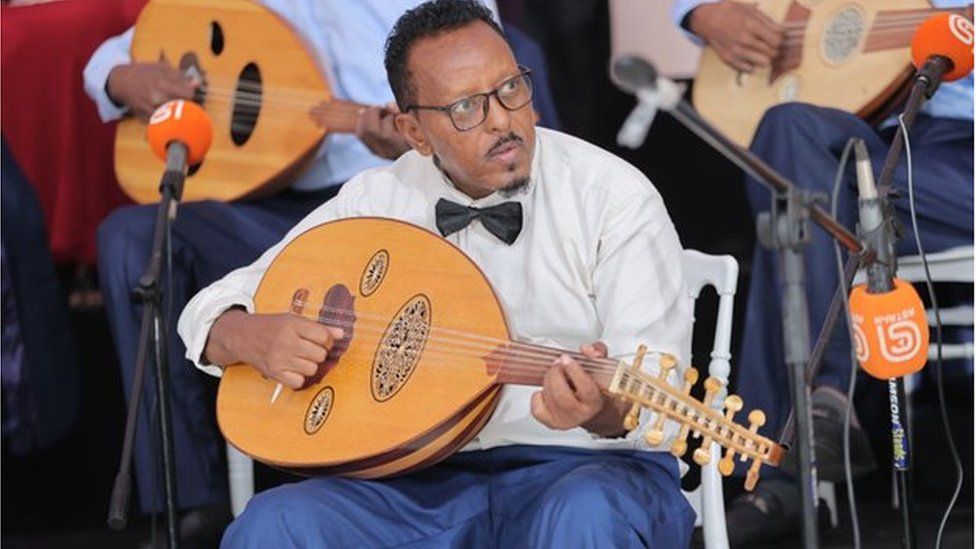
By Soraya Ali
Born at the start of Somalia’s civil war, Maryan Ali Mohamed dreamt of one day performing live on stage.
She spent hours impersonating musicians on TV and always hoped to master an instrument.
In 2019, she picked up her first violin. Now, the 33-year-old is one of 40 musicians forming a Somali orchestra.
The East African country does not have an official national orchestra, but for the first time, an ensemble of musicians were brought together for a series of televised performances.
Men and women dressed in suits and satin were recorded harmoniously playing trumpets, drums and ouds – a traditional string instrument.
“I’ve never seen anything like it,” said Fadumo Hussien, a 70-year-old grandmother watching from her living room on the outskirts of the capital, Mogadishu.
“I remember bands playing growing up, but nothing like this,” she told the BBC.
The performances, organised by Mogadishu-based production company Astaan TV, aim to revive Somali music.
“We brought this orchestra together and gave them a space to rehearse,” said Mohamed Abdiwali, one of the event organisers.
“Now they can play classical Somali music,” he said.
The carefully crafted shows are then aired online and across local TV.
“The younger generation needs to start hearing our history,” he explained.

“Historically, we’ve had bands in Somalia, with a limited number of instruments,” explained Jama Musse Jama, director of the Hargeisa Cultural Centre.
Orchestras, with their larger size and classical focus, often have a greater emphasis on collaboration and synchronicity.
“You work together in harmony and build music in harmony,” said Dr Jama, noting the sounds of the Egyptian and Sudanese orchestras.
“It’s all about coming together,” he added.
Musicians were handpicked from across the country for this project, including both seasoned instrumentalists and emerging talents, like Ms Mohamed.
“I usually play on my own, or with just a few other people, but nothing on this scale,” she told the BBC.
The mother-of-two began violin lessons just a few years ago as part of a community programme in Mogadishu. She now practises using YouTube videos.
“I am so grateful to be here,” she said smiling.
Since the outbreak of civil war in 1991, Somalia has grappled with political instability and conflict. That’s had a knock-on effect on cultural institutions.
“Somali music hasn’t had a home for years,” said Dr Jama.

The National Theatre in Mogadishu, which opened its doors in 1967, was once a cultural melting pot for the city.
Spectators would gather inside the grand hall located in central Mogadishu to watch plays, musical performances and film festivals.
It quickly became the beating heart of the creative community.
“Beyond a physical building, musicians and artists must be encouraged to come together, share ideas and produce something tangible,” explained Dr Jama.

During the civil war it was fought over by rival militias and its roof even collapsed after being hit by mortars.
Across Somalia, cultural institutions and exports are now being revived, marked by the return of cinemas, art exhibitions and Somali TV shows.
The National Theatre reopened again in 2020 and now hosts a variety of events, including this year’s Mogadishu Book Fair.
In Somaliland’s capital Hargeisa, live music nights featuring traditional Somali music and food are on the rise, which Dr Jama says is vital for sharing the country’s rich culture through the generations.
“Somali music is not well archived,” he told the BBC.
“We don’t have musical notations, we perform and it dies there and remains only in the memory of the singer,” he said.
“That’s why a televised orchestra performance is so special,” he added.
“By documenting this, we’re creating something tangible that the next generation can see, understand and appreciate.
“It’s a victory for Somali music.”
Source: BBC


